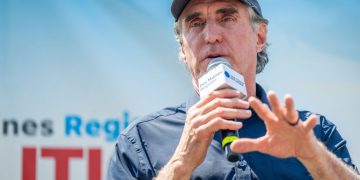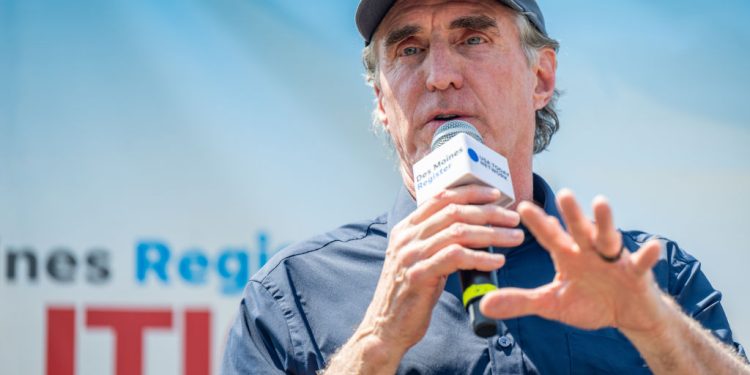Is the shrinking field of Republican presidential candidates about to become even smaller?
The next major GOP primary event is a debate in Miami on Wednesday, and one campaign already confessed its candidate has not yet hit the polling numbers required to earn a spot on the stage.
North Dakota Gov. Doug Burgum, a former businessman, does not reflect the level of support in any national or state poll needed to qualify for the debate.
Not appearing at the Miami debate could be a death blow for a campaign that was a long shot to begin with.
Burgum did appear at the previous Republican debate held on Sept. 27 in California. However, his presence was largely overlooked.
Campaign spokesman Lance Trover told the New York Post the North Dakota governor has not met the polling threshold of at least 4 percent support in either two national polls, or one national poll and two polls in the early nominating states.
Burgum would have to reach the benchmark of 4 percent in two states out of Iowa, Nevada, New Hampshire and South Carolina.
A Des Moines Register Iowa poll released Monday gave Burgum 3 percent support in the state — not good enough.
A national poll conducted by the Trafalgar Group in September put Burgum at 3.2 percent, tied with former New Jersey Gov. Chris Christie but behind former Vice President Mike Pence, who showed 3.8 percent support.
Of course, we now know how Pence’s campaign turned out. He suspended his quest for the Republican presidential nomination on Saturday.
A post on X summarized that situation.
“Doug Burgum has officially lasted longer than the former Vice President of the United States. What a time to be alive,” The Daily Wire’s Michael Knowles said.
Doug Burgum has officially lasted longer than the former Vice President of the United States. What a time to be alive.https://t.co/NpV8COfr2a
— Michael Knowles (@michaeljknowles) October 28, 2023
However, just because Burgum held on longer than Pence does not mean his campaign is succeeding — or will be able to compete much longer. The Republican debate process is designed to winnow out candidates with low support.
Unless some numbers rapidly increase, Burgum will lose his opportunity to reach a national audience alongside the five other candidates who have made the cut: Christie, Florida Gov. Ron DeSantis, former U.N. Ambassador Nikki Haley, businessman Vivek Ramaswamy and South Carolina Sen. Tim Scott.
If Burgum were to drop out, the question becomes who his followers might then support.
Larry Elder was another long-shot candidate before he threw in the towel last month. When Elder suspended his campaign, he endorsed former President Donald Trump, whose polling numbers were already dominating the other candidates in the race.
Burgum could theoretically endorse another Republican and add his single digits of support to whichever candidate he held as the best alternative.
The RealClearPolitics polling average Thursday showed Trump with 59.3 percent support followed by DeSantis at 13.4, Haley at 8.3 and Ramaswamy at 4.6. The rest of the field was below 3 percent.
If Burgum and the other marginal candidates decided to coalesce around one of the leading Trump challengers, it could shake up the GOP primary race.
However, that candidate still would face long odds, based on the current state of the race.
This article appeared originally on The Western Journal.

























 Continue with Google
Continue with Google